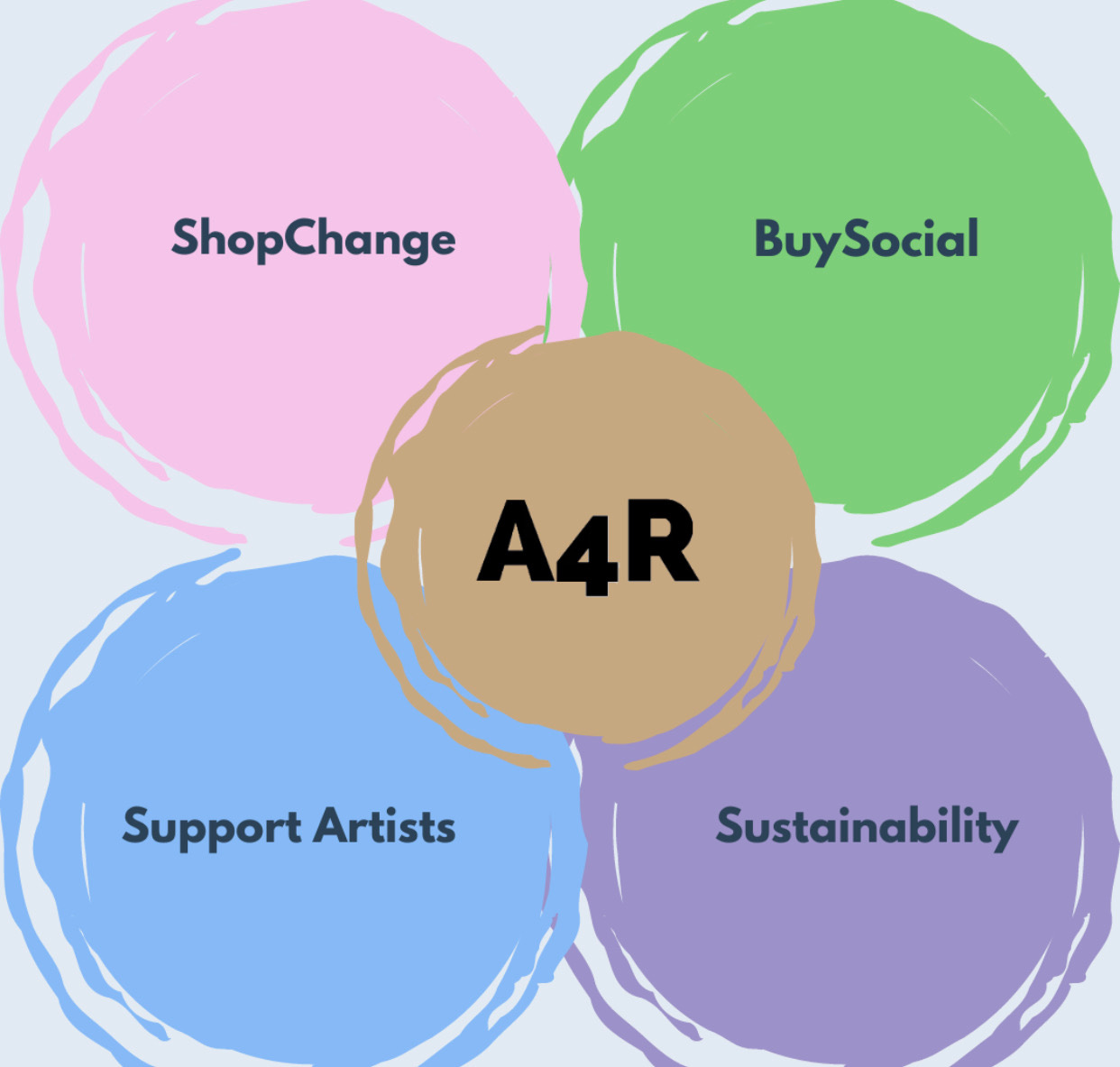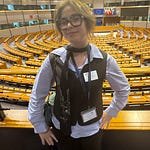Children of war: How Lebanon’s cycle of conflicts keeps shaping its youth
Decades after the Civil War, generations of Lebanese are still fighting an invisible battle—the one within
When the 4-year old Hussein Mikdad survived an Israeli airstrike in Lebanon in October 2024, his invisible scars ended up being more severe than the external ones. The strike killed almost his entire family, including his mother, three siblings, and six relatives. He and his father, Hassan, were the only survivors. He underwent surgery to treat fractures on his right thigh and arm, but trauma made him go back to diapers as he started wetting his bed again. In an interview with the Associated Press (AP), his father said that he barely speaks and never talks about his dead mother and siblings. The story of Hussein and Hassan is a portrait of a larger phenomenon in a country that, since the 1975 Civil War, has struggled with a cycle of wars. While Lebanese communities rebuild themselves after each conflict, the internal battle seems more challenging to address. What happens when a nation’s trauma is inherited across generations?
“Deprived of the safety, stability, and support that school provides, many of these children are left without the spaces they need to play, learn, and heal”, said United Nations Children’s Fund (UNICEF) Executive Director Catherine Russell in a statement last year. “War tears apart the safe and nurturing environments children need. When children are forced to endure prolonged periods of traumatic stress, they face severe health and psychological risks, and the consequences can last a lifetime.”
Over the past decades, Lebanon has experienced brief periods of peace interspersed with bloody conflicts. The Lebanese Civil War lasted fifteen years (1975–1990). During this period, Israel invaded the country twice: first targeting southern Lebanon in 1978, and again in 1982 when they reached the capital, Beirut. However, the fighting did not remain confined to these areas, spreading to Lebanese towns and refugee camps. Thousands of Palestinians displaced during the Nakba (1948–1949) settled in Lebanon, where their families still live today.
Since the end of the civil war, the Israeli Defence Forces (IDF) have gone to war with Lebanon three times: in 1996 (Grapes of Wrath War), 2006, and most recently in 2024. According to Israel, all operations have targeted Hezbollah, a Shia Islamic political party and the most powerful paramilitary group in the Middle East. Founded by Lebanese clergy in response to the 1982 Israeli occupation, Hezbollah, like Hamas in Gaza, is backed by Iran. Each time, combat left a trail of destruction and trauma in its wake.
Post-traumatic stress disorder (PTSD) is the primary consequence of war trauma experienced by children and adolescents. According to a 2013 systematic review examining the impact of this mental disorder on Lebanese teenagers (aged 10–19) during armed conflicts, “trauma and the ensuing PTSD may delay their development processes by causing regression to dependency on parents and others”. Since it’s a “transitional period from childhood to adulthood”, many turn to alcohol or substance abuse, exhibit antisocial behaviour, and experience learning and academic problems.
Based on eleven studies published between 1988 and 2013, the paper revealed that rates of PTSD in adolescents surged during recent conflicts. While rates of PTSD ranged from 8% to 14% during the civil war (1975–1990), this figure reached 21% in the 1996 conflict and ranged from 15% to 35% by the 2006 July War. These results were considerably higher than in peaceful countries such as Oman (0.5%) and the United States (8%), although they did not reach the levels recorded in more extreme settings, such as refugee and displacement camps in Iraq and the Palestinian territories (peaking at 87% in some cases).
Although less data is available on the psychological impact of the 2024 conflict in Lebanon, international organisations have highlighted its intergenerational effects. According to UNICEF, more than 400,000 children were displaced from their homes last year, with many fleeing multiple times. While reconstruction is ongoing, many have not yet returned home and are struggling to learn, as many schools were partially or completely destroyed or converted into shelters. UNICEF reported that more than 200 children were killed during the conflict. “We have seen generations of trauma in Lebanon, and we are seeing it again,” said Ettie Higgins, UNICEF’s deputy representative in Lebanon, in an interview with Sky News last year.
War trauma also has a deep impact on parents who experienced conflicts and social upheavals in the past. Zayoun was 17 in 2006, when Israel and Hezbollah were at war. Her family was forced to flee their home but was able to return after the ceasefire. However, she told the Associated Press that the conflict had become more challenging. “They’re hitting everywhere,” she told the American news agency last year. “Do they want to hurt our children? We are not what they are looking for.”
Maria Elizabeth Haddad, the International Medical Corps manager who supports psychosocial programmes in Beirut, said that displaced children had shown anxiety, hostility and even aggression in shelters, ignoring rules and talking back to their parents. In some cases, they have developed speech problems and exhibited signs of psychosis, she told the Associated Press. “There are going to be residual symptoms when they grow up, especially related to attachment ties, to feeling of security,” Haddad said last year. “It is a generational trauma. We have experienced it before with our parents. They don’t have stability or search for stability. This is not going to be easy to overcome.”
Recalling war memories can also occur in events unrelated to armed conflicts. A study by the European Journal of Psychotraumatology found that events such as the 2020 Beirut port explosions, which resulted in 220 deaths and the destruction of entire neighbourhoods, and the 2021 protests against the Beirut blast case, which escalated into an armed dispute between two political parties in the capital, also triggered cumulative stress in children and parents. According to the research, “Prior parental exposure to traumatic events, alongside persistent economic and social stress, has a cascading impact on parenting and parents’ supportive abilities, and consequently yields unfavourable psychosocial outcomes for subsequent generations”.
The study’s interviews revealed that previous trauma was still vivid among Lebanese parents. “I thought I was over all this, but I have been having flashbacks and nightmares about the war, how we had to escape from village to village, and the bombings all night long. We are all children of war”, said a parent of a 13-year-old boy.
Research has shown that there is a high prevalence of mental health disorders among the Lebanese population. According to a national study published by Frontiers in Psychiatry and conducted in 2022, 47% of the Lebanese population screened positive for potential depression, 45% for potential anxiety and 43% for PTSD.
Now, 50 years after the Lebanese Civil War, with memories of the most recent conflict between Israel and Hezbollah still fresh, many fear that any peace would only be temporary. A nationwide survey conducted by Annahar newspaper and International Information between 25 March and 2 April 2024 found that more than 51% of Lebanese citizens are concerned about the return of war. Furthermore, 42% of respondents said that they or their family members had been directly harmed by conflicts, with 23% reporting deaths or injuries, 19% property damage and 19% forced displacement.
For young generations, decades of instability have turned the desire to rebuild the nation into an eagerness to leave. According to a 2019 Generation What poll, nearly 72% of Lebanese people aged 15–29 stated that they would be happier if they didn’t live in Lebanon. The study noted that this is a generation that operates mainly in survival mode and is in a constant search for individual exit strategies, correlating this to the fact that many were born during the civil war or the aftermath of the Israeli-Hezbollah conflict. Indeed, more than political or socio-economic factors, 68% of Lebanese youth blame previous generations for the challenges they face today.
Bibliography
Abou-Saleh, M. T., & Ghubash, R. (2014). Post-Traumatic Stress Disorder in Adolescents in Lebanon as Wars Gained in Ferocity: A Systematic Review (1975–2006). Frontiers in Public Health, National Center for Biotechnology Information (NCBI) / U.S. National Library of Medicine.
Retrieved from https://pmc.ncbi.nlm.nih.gov/articles/PMC4147728/
Generation What? Arabic Countries – Lebanon. (2019). National Report: Youth in Lebanon. Civil Society Knowledge Centre (Lebanon Support).
Retrieved from https://civilsociety-centre.org/sites/default/files/resources/gwac_national_report_lebanon_en_0.pdf
American Psychological Association (APA). (2020). Diagnostic and Statistical Manual of Mental Disorders (5th ed., text rev.). Washington, DC: Author.
(Referenced contextually for PTSD definitions and criteria evolution.)
European Journal of Psychotraumatology. (2024). Intergenerational Trauma in Lebanon: How Parents’ War Memories Affect the Mental Health of Adolescents Exposed to the 2024 Conflict. Taylor & Francis Online.
Associated Press (AP). (2024, October). Traumatized by War, Hundreds of Lebanon’s Children Struggle with Wounds Both Physical and Emotional.
Retrieved from https://www.ap.org/news-highlights/uncategorized/2024/traumatized-by-war-hundreds-of-lebanons-children-struggle-with-wounds-both-physical-and-emotional/
United Nations Children’s Fund (UNICEF). (2024, November). War in Lebanon Inflicting Devastating Physical and Emotional Impacts on Children. Press Release.
Retrieved from https://www.unicef.org/press-releases/war-lebanon-inflicting-devastating-physical-and-emotional-impacts-children
Sky News. (2024, November). Conflict in Lebanon: Children Left Withdrawn, Anxious and Confused After Being Caught Up in the Violence.
Retrieved from https://news.sky.com/story/conflict-in-lebanon-children-left-withdrawn-anxious-and-confused-after-being-caught-up-in-the-violence-13229484
Frontiers in Psychology. (2025). Cumulative Stress and Parental Trauma Among Lebanese Parents of Adolescents Exposed to War in Beirut. Retrieved from https://www.frontiersin.org/journals/psychiatry/articles/10.3389/fpsyt.2024.1444245/full
In this episode Emanuelle discusses the post conflict experience in Lebanon and the issue of multiple cycles of conflict the country has experienced. She is a Citizen journalist with us on a placement organised with Department of War Studies, KCL. This article was edited using Lex.page.
Thank you for reading an A4R 🎨 Post. Don’t forget to visit our gift shop here. Every purchase scales our impact and pays our bills.













